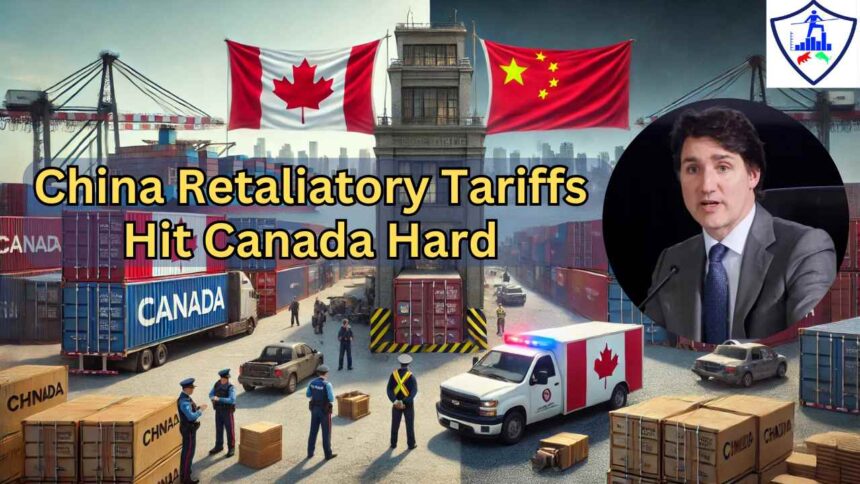China Impose Tariff On Canada: After U.S. and EU slapped a 100% tariff on Chinese electric vehicles and a 25% duty on steel and aluminium products last year, the Canadian Prime Minister Justin Trudeau justified that “these measures as a counter to what he called [China’s state-directed policy of over-capacity]” however,
Beijing doesn’t take it lightly of being accused for flooding global markets with cheap goods. China launched an anti-dumping investigation into Canadian canola (rapeseed) imports in 2024, Now Beijing hit back with its own tariffs with 100% duty on Canadian rapeseed oil, rapeseed meal and peas, 25% levy on pork and aquatic products.
Origin and Motivation
Spark created by Donald Trump with imposing tariff are now catching up fire with trade shifts which can complicate many things with economic growth and businesses that rising global tension. China retaliatory tariff imposing is not just for Canada but also an answer to the U.S. and its allies that it won’t back down easily.
Why these products?
China’s choice of targets are rapeseed oil, rapeseed meal, peas, and pork isn’t random. These play a big role in Canada’s agriculture economy as the world’s top producers of rapeseed, however, In 2023, China is a major buyer alone. Canada shipped 6.39 million tons of rapeseed to China, These products are used in cooking and pork only valued around $310 million annually this will make critical situation to the farmers.
Rapeseed and peas are economic pillars for Saskatchewan and Alberta this shows the motive of china is aiming at Canada’s agricultural heartland.
Canada’s Financial Losses from Tariffs
$2.6 billion in Canadian exports are affected by this it will be hit hard if trade drop even a third Canada loss would be in billions.
Rapeseed Oil, Meal & Peas: Canada exported $3.72 billion worth of rapeseed to China in 2023. If 100% tariff imposed this will make half of it means causing over $1 billion in losses. Peas are aditionally added to it.
Pork & Seafood: Imposing 25% of tariff on pork which is worth $310 million will squeeze the share of Canada and Seafood exports worth $1.6 billion also face new tariffs making a situation worse.
Wider Effects: Farmers and exporters may struggle to find new buyers, rising competition that leading to lower prices and reduced profits. Job losses in farming communities are a real risk.
What challenges Canada will face
Canada Government
This will hard to finding new buyers for its rapeseed, peas and pork. While China’s market take goods from Australia and Ukraine, Canada has left to trade with Europe or Southeast Asia market which is crowded but on the other hand, Trudeau’s government may push for negotiations, but with Trump’s unpredictable trade agenda looming, the path forward is murky.
Read also: 24/7 stock market trading India
Consumers
Canadian could see higher pork prices if domestic supply builds up, while Chinese consumers will have to pay more for cooking essentials like oil and pork that will rise a tension with stock sell-off and currency fluctuations effecting global markets.
China retaliation
China’s bold move of retaliation on tariffs will make things uncertain and rise up the trade war. Our economies are interconnected Canadian farmers staring down a $820 million hole, and for China flexing its muscle, this is more than just politics. There are risk on the livelihood of the people that are at stakes.









